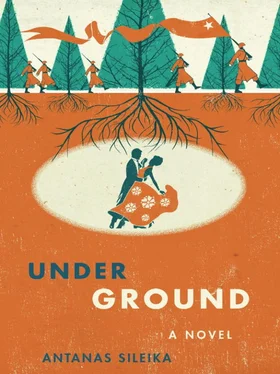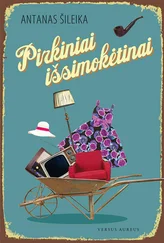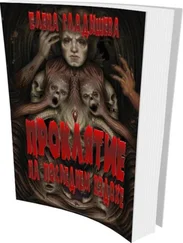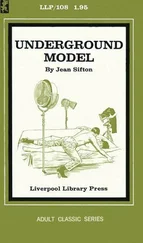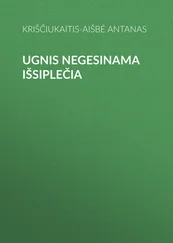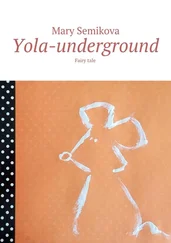On a Sunday night in February, when the air was so cold the trees seemed to cry out in pain, Flint called the brothers up from their bunker. Outside, they found Ungurys and Lakstingala, both of them swaddled thickly against the cold and wearing knapsacks and carrying their weapons. Flint’s pipe was unlit, but his breath streamed like smoke in the air.
“All right, you two,” he said, “you’ve been sitting around too long. You’re going to get fat this way. Besides, it’s time for your baptism.”
“Baptism?” Vincentas asked.
“By fire. Don’t worry—nothing too exciting. Two of my best men will be with you.”
“Let’s get moving,” said Ungurys through the scarf over his mouth. “If we stand still, we’ll freeze to the spot.”
Vincentas and Lukas went with the other two and made their way to the market village an hour and a half away.
Lukas was glad to be going out, to be doing something besides listening to the radio and typing up news, if only to stretch his muscles. The mission was like a night game of the kind he used to play with the other farm children, but instead of a staff he carried a rifle strapped to his back; instead of a pocketknife, a long blade in his boot; instead of a flashlight, a grenade at his side. Still, it felt a little like a game. The men carried proclamations as well as other materials in knapsacks on their backs. The four walked across frozen streams and woods until they came to a spot along the main road out of the town, about a kilometre from the centre.
While Ungurys and Lakstingala kept watch from a hill alongside the road, Vincentas and Lukas nailed proclamations to each of three telegraph poles. They were posters depicting Stalin as a ghoul, consuming the country. Above each proclamation they nailed a warning sign forbidding passersby to remove the posters. At the third pole, the one farthest away from the town, Ungurys and Lakstingala took over, first wiring the poster to a device behind the pole and then setting up a primitive picket fence topped with barbed wire.
“What’s that all about?” Vincentas asked.
“You do your job, we do ours,” said Ungurys.
Lakstingala tended to be talkative, but Ungurys had a slightly determined air, as if his missions were more important to him than they were to others. It was a form of seriousness that made him curt at times. Lukas liked him well enough, but not as much as his sister, who had been by once and come to look for Lukas to share a cup of tea with him. They didn’t really know each other well, and she had sat in the bunker with Lukas while Vincentas asked her questions about her spiritual life.
Lukas and Elena had twice shared glances as Vincentas spoke, and in the first sliver of time a trace of understanding formed between them. She sensed that the older brother indulged the younger one in the same way that she took care of her own brother. They looked at one another again and this time they sensed something else, which made it impossible to look a third time.
Ungurys and Lakstingala took a long time, and it was shortly before dawn when they finished. Vincentas and Lukas were very cold, and they trotted up and down the road to warm themselves.
“Now we withdraw to a vantage point and watch,” said Lakstingala.
“Flint didn’t say anything about that,” Lukas said.
“Not to you he didn’t. He only tells you what you need to know.”
Using pine boughs, they erased their footprints and moved more deeply into the forest, up a slight rise and behind a thicket of bushes, which camouflaged them but permitted them a view of the road below.
Lakstingala and Ungurys lit cigarettes and smoked them, then buried the butts in the snow. They each carried a light machine gun, which they unslung from their shoulders and rested on their laps. Lakstingala instructed Vincentas and Lukas to ready their rifles, and they waited.
It was very cold, and they had been up all night, which made the cold bite even more. Ungurys gave Vincentas a dirty look every time he coughed, and so he tried to do it into his gloves whenever the need arose, muffling the sound.
An hour after dawn they heard a Studebaker coming out of the village, its exhaust a funnel of steam in the morning sunlight. The car drove past the first proclamation and then stopped and backed up.
Three slayers, the driver and a Cheka officer got out. The slayers cut the proclamation off the post with a knife. They did the same at the second telegraph post. When they came to the third, the officer and his driver stayed in the car and only the three slayers got out. Two of them, looking not much older than boys, stepped forward to remove the barbed wire and the poster. The third, considerably older, stood back to watch them work.
The explosion was so great that it blew the one man apart, toppled the pole onto the second and made the third throw his hands to his face, which had had bits of barbed wire driven into it. One of the side windows of the car was blown out as well and from inside it the partisans could hear the officer shouting at the driver. After a few moments the car circled and drove back into town.
The wounded man was disoriented, blinded, turning around and around as if expecting help to come from the car. He moaned and shouted incoherently. Ungurys snorted.
“The fool’s expecting help. The other two will be shaking in fear and looking through the back window all the way home. They won’t return until they have thirty men with them.”
“All right,” said Lakstingala. “Let’s go home.”
“What about the poor man on the road?” asked Vincentas. Lukas looked at the man too. He was howling, his hands over his eyes and blood running down his cheeks.
“What about him?” asked Lakstingala.
“Aren’t you going to take him prisoner?”
“We don’t take prisoners. We have no place to put them.”
“You can’t just leave him like that,” said Vincentas.
“You’re right,” said Ungurys. “Put him out of his misery.”
“What?”
“If you feel so bad, you should shoot him.”
“Vincentas is new,” said Lakstingala. “He still has scruples. You can shoot him yourself.”
“The machine gun isn’t accurate at this distance, and I’m not about to go down and up this hill in knee-deep snow just to save some slayer a little pain. You, Vincentas, shoot the man.”
Vincentas blanched and shook his head.
“I told you to shoot him.”
“There’s no need.”
Lakstingala now sided with Ungurys. “You brought up the subject. Anyway, he’s your enemy. He’s probably condemned priests to death. You’d better shoot the slayer or Ungurys will have you up before Flint. He said you were supposed to be baptized, so get on with it.”
“I won’t do it,” said Vincentas. Lukas noted a sudden change in his tone, a supercilious air that might provoke a man. Lakstingala noticed it too, the arrogance of the superior man, the intellectual who will not stoop so low as others.
“ Won’t do it?” asked Lakstingala. He was the more civilized of the two, the more genial, but a partisan was a soldier. Soldiers followed orders and expected others to do the same, especially unbaptized partisans.
Lukas looked at his younger brother in wonderment. Did Vincentas not see what he was doing by this outright refusal? And couldn’t he hear himself talking down to these men?
“Stop this nonsense,” said Lakstingala, his voice as cold as the winter day. “I order you to shoot the slayer.”
In one smooth action, Lukas lifted his rifle, sighted and fired, the crack of the gunfire a blow to the ears, the smell of cordite immediate.
Lukas lowered his rifle. The slayer had been shot in the chest and went straight down. Vincentas looked at him in horror.
Читать дальше
